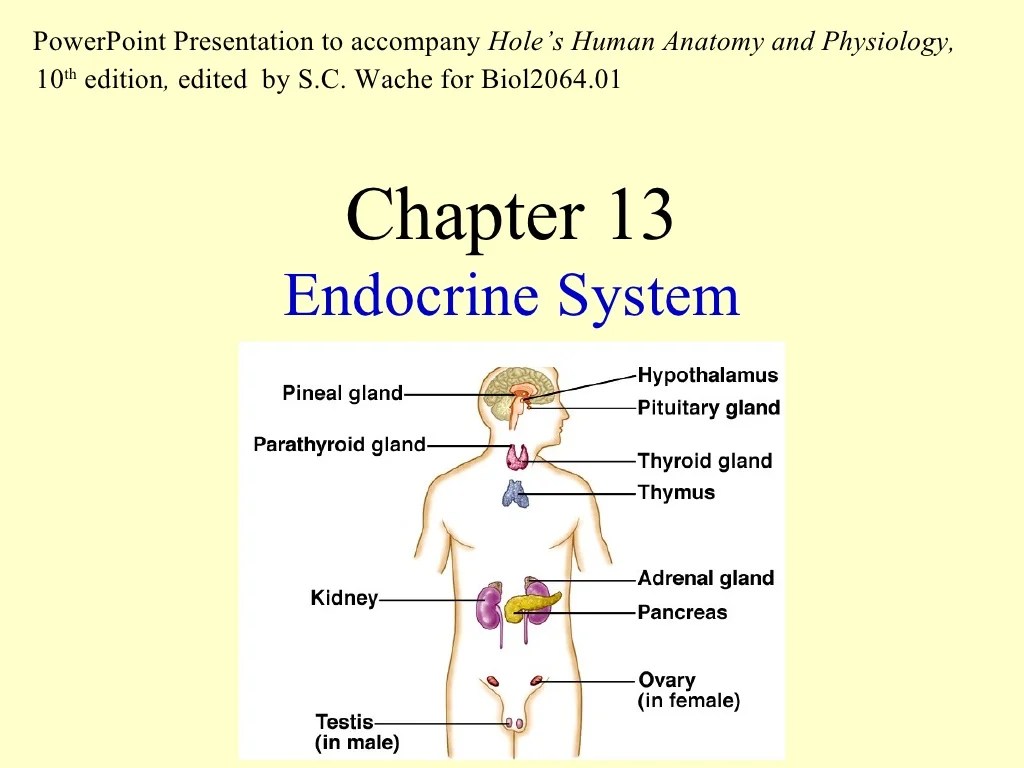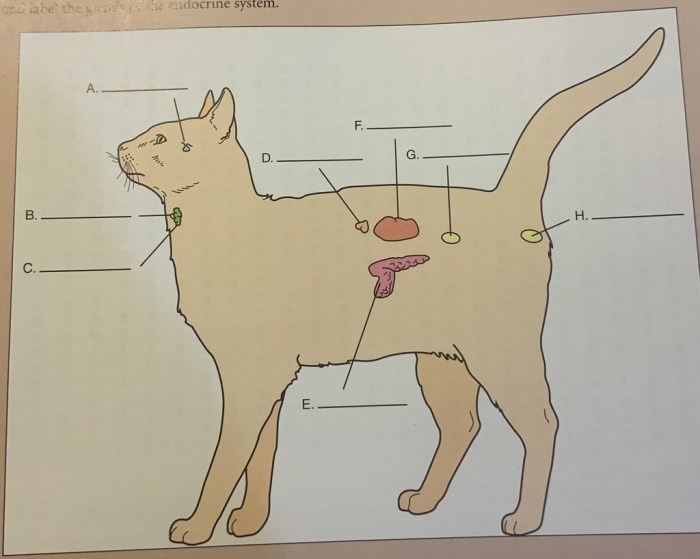Embarking on test chapter 7:13 endocrine system, this discourse delves into the intricate network of glands and hormones that orchestrate a symphony of bodily functions. The endocrine system, a maestro of homeostasis, exerts its influence through chemical messengers, shaping our metabolism, growth, reproduction, and more.
Unveiling the intricacies of hormonal regulation, we explore the interplay between the hypothalamus, pituitary gland, and target organs. Negative feedback loops, the body’s self-correcting mechanism, ensure hormonal balance and maintain physiological equilibrium.
Endocrine System Overview: Test Chapter 7:13 Endocrine System
The endocrine system is a complex network of glands that produce and secrete hormones directly into the bloodstream. Hormones are chemical messengers that regulate various bodily functions, including growth, metabolism, reproduction, and homeostasis. The endocrine glands are located throughout the body and can be classified based on their structure and function.
Types of Endocrine Glands
- Pituitary gland:Located at the base of the brain, the pituitary gland is known as the “master gland” as it controls the activity of other endocrine glands.
- Thyroid gland:Situated in the neck, the thyroid gland produces hormones that regulate metabolism.
- Parathyroid glands:Found near the thyroid gland, the parathyroid glands produce hormones that regulate calcium levels in the blood.
- Adrenal glands:Located on top of the kidneys, the adrenal glands produce hormones that regulate stress response and blood pressure.
- Pancreas:Located behind the stomach, the pancreas produces hormones that regulate blood sugar levels.
- Ovaries (in females):Located in the pelvis, the ovaries produce hormones that regulate the menstrual cycle and reproductive function.
- Testes (in males):Situated in the scrotum, the testes produce hormones that regulate male reproductive function and secondary sexual characteristics.
Hormones vs. Enzymes
Hormones and enzymes are both important biological molecules, but they differ in their functions and mechanisms of action. Hormones are signaling molecules that travel through the bloodstream and bind to specific receptors on target cells, triggering a response. Enzymes, on the other hand, are catalytic proteins that speed up chemical reactions within cells.
Hormonal Regulation

The release and regulation of hormones is a complex process involving multiple levels of control. The hypothalamus, a region of the brain, plays a crucial role in hormonal regulation by releasing hormones that stimulate or inhibit the pituitary gland. The pituitary gland then secretes hormones that target other endocrine glands, triggering the release of their respective hormones.
Negative Feedback, Test chapter 7:13 endocrine system
Hormonal regulation often involves negative feedback mechanisms. When the levels of a hormone in the bloodstream reach a certain threshold, the pituitary gland or hypothalamus detects the change and sends signals to reduce the release of the hormone. This negative feedback loop ensures that hormone levels are maintained within a narrow range.
Major Endocrine Glands and Their Hormones

| Endocrine Gland | Location | Hormone(s) Produced | Function(s) of the Hormone(s) |
|---|---|---|---|
| Pituitary gland | Base of the brain | Growth hormone (GH)Thyroid-stimulating hormone (TSH)Adrenocorticotropic hormone (ACTH)Follicle-stimulating hormone (FSH)Luteinizing hormone (LH) | Regulates growth, thyroid function, adrenal function, reproductive function |
| Thyroid gland | Neck | Thyroxine (T4)Triiodothyronine (T3) | Regulates metabolism |
| Parathyroid glands | Near the thyroid gland | Parathyroid hormone (PTH) | Regulates calcium levels in the blood |
| Adrenal glands | Top of the kidneys | CortisolEpinephrine (adrenaline)Norepinephrine (noradrenaline) | Regulates stress response, blood pressure |
| Pancreas | Behind the stomach | InsulinGlucagon | Regulates blood sugar levels |
| Ovaries (females) | Pelvis | EstrogenProgesterone | Regulates menstrual cycle, reproductive function |
| Testes (males) | Scrotum | Testosterone | Regulates male reproductive function, secondary sexual characteristics |
Disorders of the Endocrine System
- Diabetes mellitus:A group of metabolic disorders characterized by elevated blood sugar levels due to insulin deficiency or resistance.
- Thyroid disorders:Conditions affecting the thyroid gland, including hypothyroidism (underactive thyroid) and hyperthyroidism (overactive thyroid).
- Cushing’s syndrome:A disorder caused by excessive cortisol production, leading to weight gain, high blood pressure, and diabetes.
- Addison’s disease:A disorder caused by insufficient cortisol production, resulting in weight loss, fatigue, and low blood pressure.
- Pituitary disorders:Conditions affecting the pituitary gland, such as growth hormone deficiency or prolactinomas (tumors that secrete prolactin).
Importance of the Endocrine System

The endocrine system plays a vital role in maintaining homeostasis, the internal balance of the body. Hormones regulate a wide range of bodily functions, including growth, metabolism, reproduction, and stress response. Imbalances in hormone levels can lead to various health problems, highlighting the importance of proper endocrine function.
For example, insulin and glucagon hormones regulate blood sugar levels, ensuring the body has a constant supply of energy. Thyroid hormones regulate metabolism, affecting body temperature, heart rate, and energy expenditure. Cortisol, produced by the adrenal glands, helps the body respond to stress by increasing blood pressure and glucose levels.
Questions and Answers
What is the primary function of the endocrine system?
The endocrine system regulates and coordinates various bodily functions by secreting hormones into the bloodstream.
How does the hypothalamus interact with the pituitary gland?
The hypothalamus releases hormones that stimulate or inhibit hormone production in the pituitary gland, which in turn regulates other endocrine glands.
What is the significance of negative feedback in hormone regulation?
Negative feedback loops ensure that hormone levels are maintained within a narrow range, preventing over- or under-secretion.